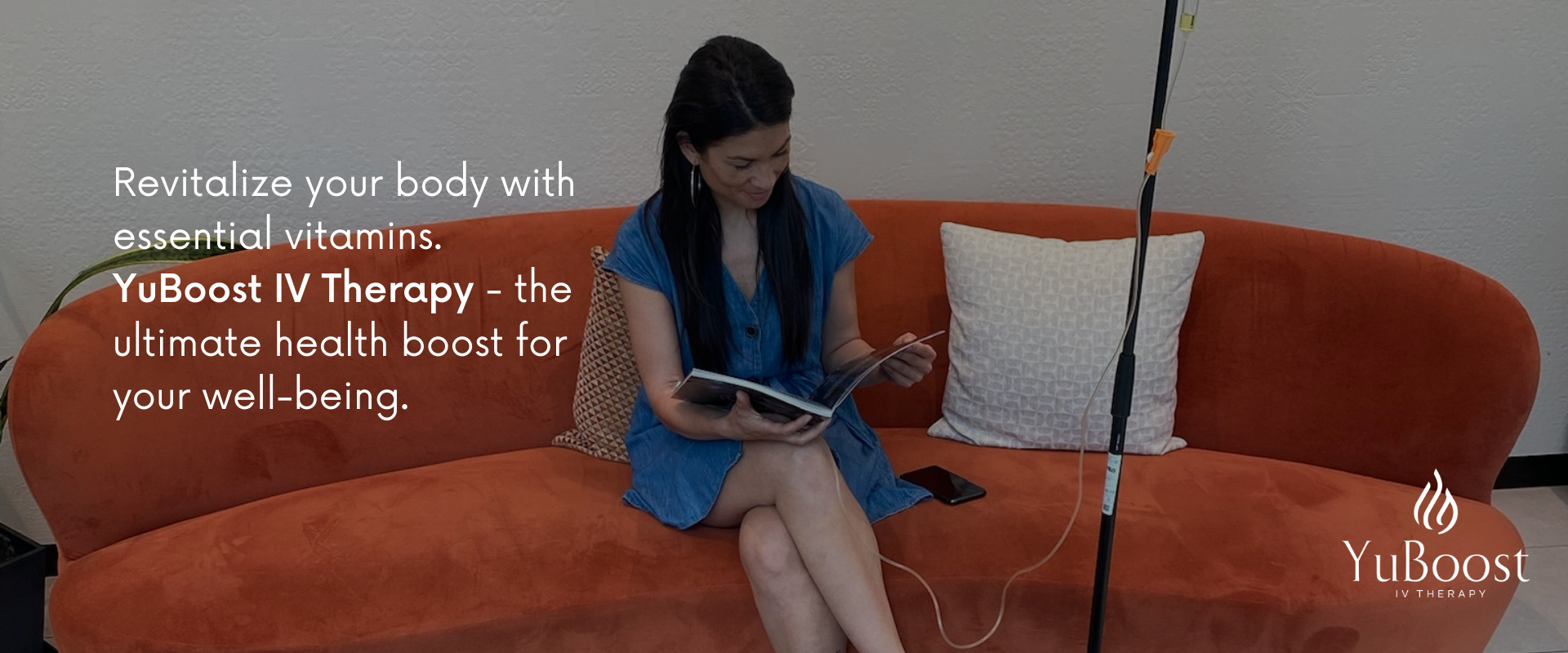What exactly are vitamin B injections?

The vitamin B complex comprises eight vitamins known as water-soluble (they dissolve in water): B1 (thiamine), B2 (riboflavin), B3 (niacin), B5 (pantothenic acid), B6 (pyridoxine), B8 (biotin), B9 (folic acid) and B12 (cobalamin). These vitamins are assimilated by the body through food: they’re found in cereals, pulses, legumes, nuts and seeds, cheese, meat, poultry, eggs, fish, milk as well as in fresh fruit and vegetables. Although needs vary from one person to another, the following daily intake is normally recommended:
:
| Type of vitamin B | For women | For men |
| B1 | 1,1 mg | 1,2 mg |
| B2 | 1,1 mg | 1,3 mg |
| B3 | 14 mg | 16 mg |
| B5 | 5 mg | |
| B6 | 1,3 mg | |
| B8 | 30 mcg | |
| B9 | 400 mcg | |
| B12 | 2,4 mcg | |
In what cases should vitamin B be taken?
In the event of vitamin B deficiency, it’s possible to opt for a supplementary intake: such as the intravenous vitamin injections that YuBoost proposes. Several signs and symptoms should alert you to a possible vitamin B deficiency: digestive disorders (diarrhoea, constipation), skin issues (rashes, cracks around the mouth, for example), tiredness, anaemia and occasionally neuropsychiatric disorders (irritability, depression). Vegans and vegetarians are more likely to suffer from vitamin B deficiency. This is also the case for people on long-term proton-pump inhibitor-type treatment.
What are the benefits of vitamin B
- Increases energy levels
- Reduces stress and chronic fatigue
- Promotes deeper, more restorative sleep
- Better mental focus
- Skin, hair, nail and complexion healthiness (B8 biotin)
- Prevents cardiovascular diseases
- Increases muscle tone
Vitamin B boasts a wide array of benefits for the body. It boosts energy levels, reduces stress and fatigue and enhances sleep quality. It also promotes skin, hair, nail and complexion healthiness. It has a positive effect in preventing many diseases, such as cancer, Parkinson’s disease and cardiovascular diseases. It also increases muscle tone, which is why it helps improve sport performances. Moreover, it’s a vital plus for pregnant women as it helps reduce several pregnancy-related symptoms (fatigue, nausea) and promotes foetus development.
What are the side effects of vitamin B?
- Gastrointestinal disorders
- Skin reactions
- Sensitivity to light
- Headaches
- Neurological effects: numbness, tingling, pins & needles
If overdosed: hypotension, hypertension, negative impact on mental health
Various side effects can occur when taking vitamin B and vary based on the type of vitamin B ingested. The most common effects include gastrointestinal disorders (nausea, stomach ache, indigestion, diarrhoea), especially in seniors, as well as allergic skin reactions such as rashes, redness, inflammation and itching, and in some cases even urticaria. Some people may temporarily experience heightened sensitivity to light, headaches or neurological effects such as feelings of numbness in arms or legs. Furthermore, in the event of overdose, hypotension or hypertension may occur, as well as a negative impact on mental health with mood swings, agitation, even depression and panic attacks.





